by Gary Romeo
With the apparent resurgence of Sword & Sorcery along with the Heroic Legends series announcement of new Conan adventures I’ve decided to re-look at an old parody of the genre written by the more than capable Poul Anderson.
“The Barbarian” first appeared in the May 1956 issue of The Magazine of Fantasy and Science Fiction.
Poul Anderson has two articles in this issue. “Nice Girls on Mars” and “The Barbarian.” The first article is not really on-topic here, but it is interesting enough for a little detour. The Magazine of Fantasy and Science Fiction is still being published today. It has a respectable history and, in my opinion, overtook Astounding/Analog in quality during the 1950s.
The two articles grouped under “Of Mars and Men” are in reaction to an article by Dr. R. S. Richardson titled “The Day After We Land on Mars,” originally published in the Saturday Review (May 28, 1955). Dr. Richarson stated in the article that citizens of the world “may be forced into first tolerating and finally openly accepting an attitude toward sex that is taboo in our present social framework. To put it bluntly, may it not be necessary for the success of the project to send some nice girls to Mars at regular intervals to relieve tensions and promote morale?”
Rather than accepting “Whores on Mars” which, admittedly, was my first and last thought, Poul Anderson writes a thoughtful article covering various possibilities: married couples, homosexuality, a drug to inhibit the sex drive, and celibate Priests to do space exploration. He concludes that once colonies are established on Mars that there will be new issues to deal with.
The second article by Miriam Allen DeFord is deliberately stated by the editor as being “not feminist, but merely [a] human point of view.” She also writes a thoughtful article. There is the commonsense notion of women as equals, along with talk of bisexuality, and how complex human relationships can be. I found it all somewhat surprising that these issues were discussed more intelligently in 1956 than they are today in 2023!
But enough on that diversion. Let’s deal with “The Barbarian.” It starts with a “parody” introduction full of hit and miss inside jokes. I’m not sure what the name “Cronkheit the Barbarian” parodies? Initially I thought of newscaster Walter Cronkite, but I believe 1956 was too early for his name to be highly recognizable? Miskatonic for Arkham and Pixy for Gnome are fairly clever. I got a laugh out of J. Wellington Wells. (That was a pseudonym Sprague de Camp used for some book reviews in Astounding.) The book titles, “Scull-Race and Others” and “The Coming of Cronkheit” are pretty obvious and weak jokes.
TBH, the parody as a whole is pretty weak. What is mainly of interest to me is that Poul Anderson seems to be poking a bit of fun at not only Robert E. Howard but also at Sprague de Camp and others who enjoy the Conan tales and authors in general who write Sword & Sorcery (although at this stage it was still called “Science-Fantasy.”)
There are some decent jokes along with a lot of corn. I liked the “North European” one in the above introduction and the general theme of the story. The story begins in the form of a letter. The prefect of Sarmia is writing to his nephew. The letter tells of the Barbarian who ruined his life. Sarmia had been in a sort of forever war with Chathakh. There were slight skirmishes, nothing major, and all in all, it actually created a good economy for the leaders.
There is a third party, the Serpens, who might sway the balance of power, so they are worrisome. Trouble starts when Cronkheit the Barbarian shows up:
Before you nod appreciatively and think, “too tall, but that’s my Conan” the “parody” begins in earnest. “I yam Cronkheit duh Barbarian, an’ I wanna audience widjer queen!”
Yep, Cronkheit speaks like a dolt, and is a smelly flea-ridden muscle-bound bore. Rather than tear up the magazine in frustration I continued on. The oversexed queen, despite his many flaws, gets the hots for Cronkheit. Cronkheit is, shall we say, an unsophisticated lover who immediately grabs the queen in a smothering embrace. The guards have to rescue her.
The queen decides to use Cronkheit as a warrior instead of as a lover. The story continues on with mostly unfunny jokes and situations until Cronkheit is sent to attack Chathakh with a small force of men. Rather than being a death sentence for Cronkheit, it is the death sentence for Chathakh. The Barbarian destroys the capital, libraries, works of art, and any possibility of tribute to Sarmia.
This is where the story has some real parody. “Why do you think wars are fought? War is an extension of diplomacy. It’s the final means of making somebody else to do what you want. The object is not to kill them off – how can corpses obey you?” And later, “You’ve left a howling wilderness which we must garrison with our own troops lest the nomads take it over. Your atrocities have alienated every civilized state. You’ve left us alone and friendless. You’ve won this war by losing the next one.”
The Sarmian General then sends Cronkheit to fight on the side of their enemy, the Serpens. The letter (which started this story) concludes “Since then, of course, our affairs have prospered and Serpens is now frantically suing for peace. But we intend to prosecute the war till they meet our terms. We are most assuredly not going to be ensnared by their treacherous plea and take the Barbarian back!”
All in all, not a great parody, I liked the “why wars are fought?” part but the ending doesn’t quite make sense, in my opinion, anyway. Parodies of Conan aren’t really my thing. But parodies occur when something is popular. So… here’s to more parodies.
Bonus: Conquest Comics (more about them in the future) did a comic book adaptaion of the story. It isn’t great but they did make a good observation in that Poul Anderson created a Groo the Wanderer type parody well before Sergio Aragonés.
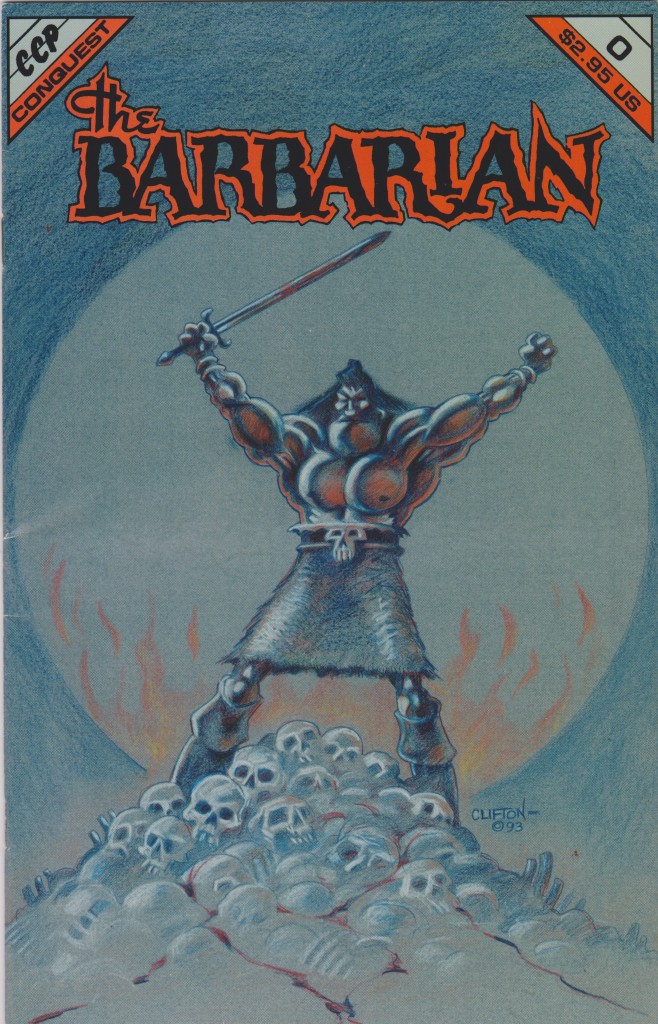
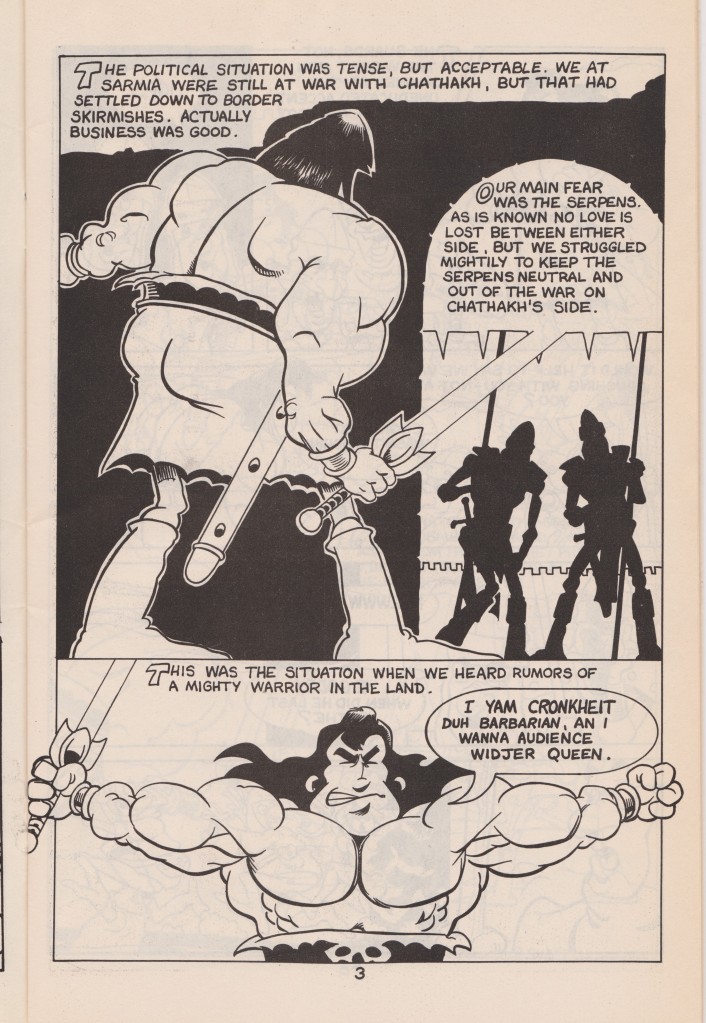
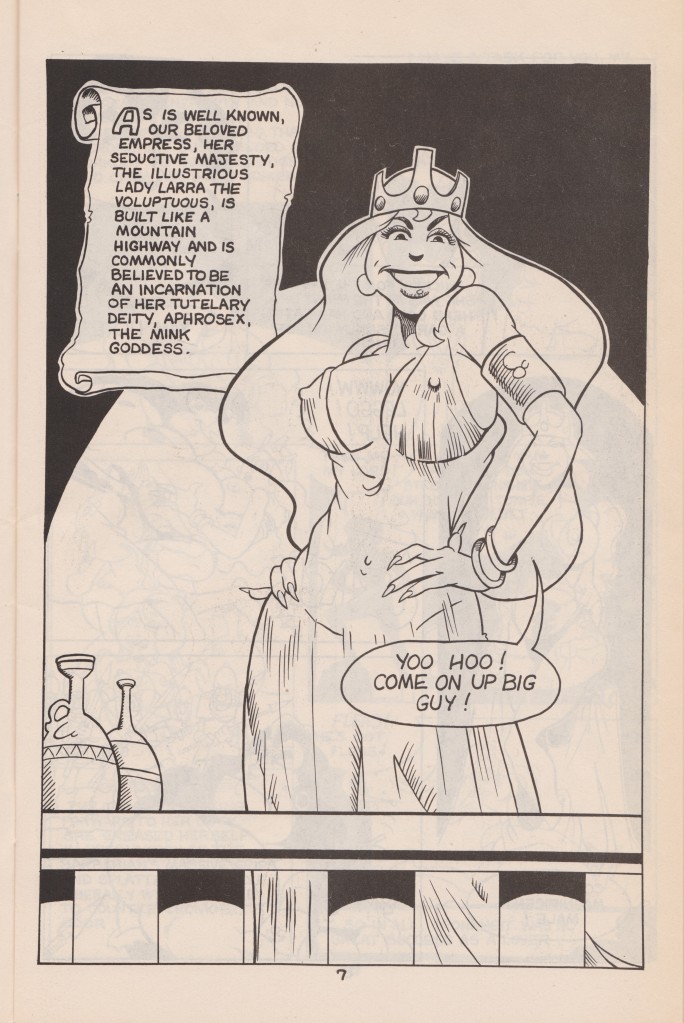

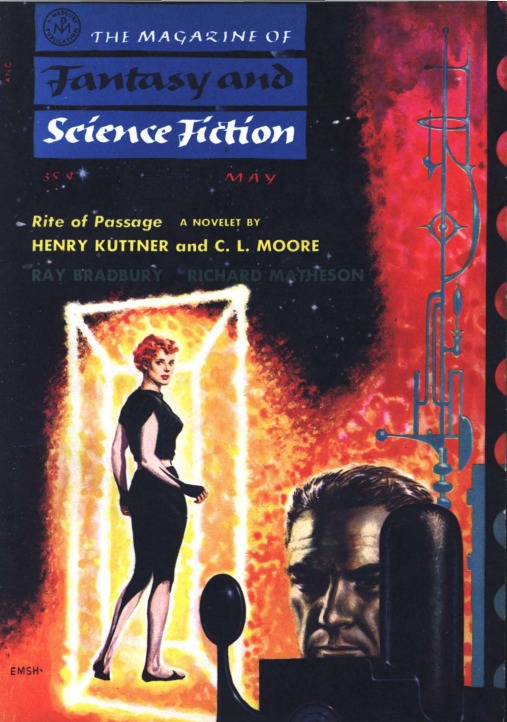
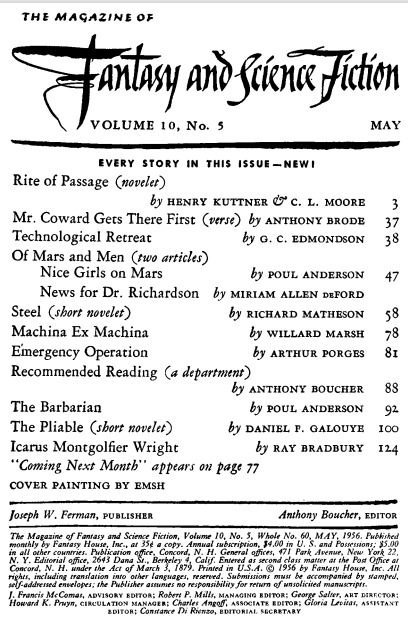
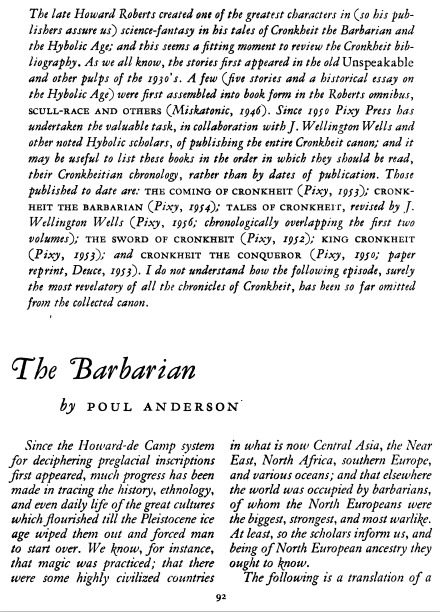
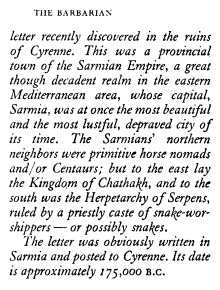
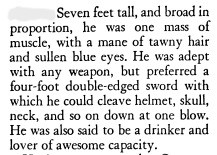
I was amused. Yeah, the humor seems a bit broad, but what I saw of the actual parody interested me more than Anderson’s straight Conan story, Conan the Rebel, ever did. He COULD have gotten his Barbarian’s name from Walter Cronkeit, as the latter’s news career began in the mid-1930s, and he “became one of the top American reporters in World War II, covering battles in North Africa and Europe.” (Thanks, wikipedia!) He also hosted the “You Are There” program from 1953-1957, so he would definitely have already been a household name when the Anderson piece appeared. The end of the article felt abrupt, though; for some reason I expected the “future” revelations about the comic publisher to be part of the bonus, rather than some future article. Well, something to look forward to!
Pingback: Sensor Sweep: – castaliahouse.com
J. Wellington Wells is the title character in the Gilbert & Sullivan comic opera _The Sorcerer_. There was a time when most fantasy and SF fans were also G&S devotees, so everyone would have gotten the reference.
Thanks for the article, it was interesting.